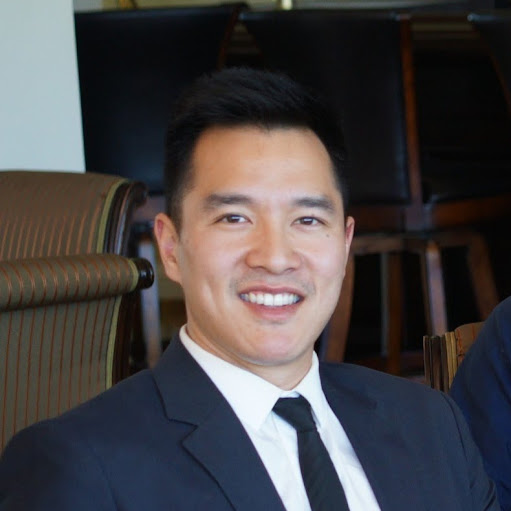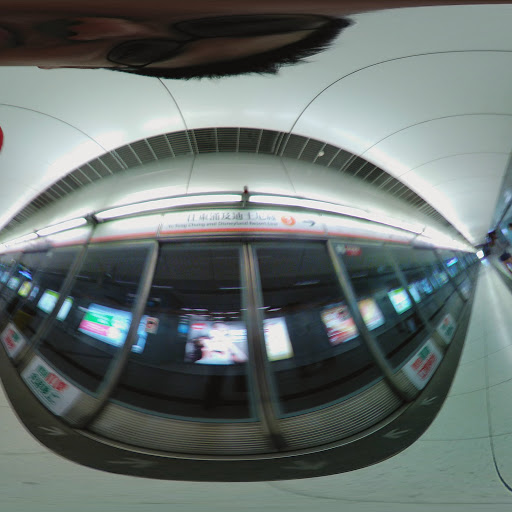William K Cheung
age ~41
from Kent, WA
William Cheung Phones & Addresses
- 10858 SE 218Th St, Kent, WA 98031
- Seattle, WA
- Stuart, FL
- 921 139Th Ave NE APT 307, Bellevue, WA 98005 s
- 6203 Orange Cove Dr, Orlando, FL 32819
Work
-
Company:Operations management - Orlando, FLOct 2009
-
Position:Human resources manager, financial analyst
Education
-
School / High School:University of Central Florida2002
-
Specialities:BSBA in Management Information Systems
Us Patents
-
Method And Apparatus For Handling Errors In A Processing System
view source -
US Patent:7308610, Dec 11, 2007
-
Filed:Dec 10, 2004
-
Appl. No.:11/009166
-
Inventors:Rajendra Kuramkote - Newcastle WA, US
Suresh Marisetty - San Jose CA, US
Koichi Yamada - Los Gatos CA, US
Scott Brenden - Bothell WA, US
William Cheung - San Jose CA, US -
Assignee:Intel Corporation - Santa Clara CA
-
International Classification:G06F 11/00
-
US Classification:714 38
-
Abstract:A processing system may include an operating system (OS) and one or more specialized error handling modules to be registered with the OS after the processing system is powered on. The OS may also include a master policy module. The specialized error handling module may collect error data from a component of the processing system, and may generate abstracted error data, based at least in part on the collected error data. The master policy module may determine a recovery action to be taken, based at least in part on the abstracted error data. The OS may also include an error collection routine that calls one or more specialized error handling modules in response to detecting a hardware error. The error collection routine may also retrieve information from firmware in response to detecting the hardware error. Other embodiments are described and claimed.
Isbn (Books And Publications)








Medicine Doctors

William M. Cheung
view sourceSpecialties:
Internal Medicine, Hematology/Oncology
Work:
C & K Medical Group
19 Bowery FL 2 STE 8, New York, NY 10002
(212)2262251 (phone), (888)5028168 (fax)
Cheung & Kan Medical Group
863 50 St APT M3, Brooklyn, NY 11220
(718)4312985 (phone), (718)5761068 (fax)
Cheung Kam Medical Group
13636 39 Ave STE 2, Flushing, NY 11354
(212)2262251 (phone), (877)2505443 (fax)
19 Bowery FL 2 STE 8, New York, NY 10002
(212)2262251 (phone), (888)5028168 (fax)
Cheung & Kan Medical Group
863 50 St APT M3, Brooklyn, NY 11220
(718)4312985 (phone), (718)5761068 (fax)
Cheung Kam Medical Group
13636 39 Ave STE 2, Flushing, NY 11354
(212)2262251 (phone), (877)2505443 (fax)
Education:
Medical School
The Chinese Univ of Hong Kong, Fac of Med, Hong Kong
Graduated: 1987
The Chinese Univ of Hong Kong, Fac of Med, Hong Kong
Graduated: 1987
Procedures:
Bone Marrow Biopsy
Chemotherapy
Electrocardiogram (EKG or ECG)
Nutrition Therapy
Pulmonary Function Tests
Vaccine Administration
Chemotherapy
Electrocardiogram (EKG or ECG)
Nutrition Therapy
Pulmonary Function Tests
Vaccine Administration
Conditions:
Abnormal Vaginal Bleeding
Acne
Acute Bronchitis
Acute Conjunctivitis
Acute Pharyngitis
Acne
Acute Bronchitis
Acute Conjunctivitis
Acute Pharyngitis
Languages:
Chinese
English
English
Description:
Dr. Cheung graduated from the The Chinese Univ of Hong Kong, Fac of Med, Hong Kong in 1987. He works in New York, NY and 2 other locations and specializes in Internal Medicine and Hematology/Oncology. Dr. Cheung is affiliated with Lutheran Medical Center, Mount Sinai Beth Israel, Mount Sinai Beth Israel Brooklyn Medical Center, New York Presbyterian Lower Manhattan Hospital and The Brooklyn
Wikipedia References

William Cheung

William Cheung (Scientist)
Resumes

Mission Developer
view sourceLocation:
Seattle, WA
Industry:
Religious Institutions
Work:
Grace Chinese Lutheran Church Sep 2008 - 2017
Choir Director
University of Washington Medical Center Jun 2013 - Aug 2013
Cpe Chaplain
Elca Jun 2013 - Aug 2013
Mission Developer
Grace Chinese Lutheran Church Sep 2008 - Jun 2011
Angel Choir Director
Choir Director
University of Washington Medical Center Jun 2013 - Aug 2013
Cpe Chaplain
Elca Jun 2013 - Aug 2013
Mission Developer
Grace Chinese Lutheran Church Sep 2008 - Jun 2011
Angel Choir Director
Education:
Luther Seminary 2011 - 2016
Masters, Master of Divinity Seattle Pacific University 2005 - 2008
Bachelors, Composition, Music
Masters, Master of Divinity Seattle Pacific University 2005 - 2008
Bachelors, Composition, Music
Skills:
Music

William Cheung
view source
William Cheung
view source
William Cheung
view source
William Cheung
view source
Posdoctoral Fellow At Uc Davis
view sourcePosition:
Posdoctoral fellow at UC Davis
Location:
Davis, California
Industry:
Research
Work:
UC Davis - Davis, California since Jan 2012
Posdoctoral fellow
UC Davis - Davis, California Nov 2010 - Dec 2011
Posdoctoral Research Associates
Posdoctoral fellow
UC Davis - Davis, California Nov 2010 - Dec 2011
Posdoctoral Research Associates
Education:
The University of Manchester 2005 - 2010
PhD, Metabolic profiling of volatile organic compounds and enhanced vibrational spectroscopy The University of Manchester 2004 - 2005
Masters of science, Physical methods for bioanalysis and post genome science University of Greenwich 2000 - 2003
2:2 (Hons), Chemistry
PhD, Metabolic profiling of volatile organic compounds and enhanced vibrational spectroscopy The University of Manchester 2004 - 2005
Masters of science, Physical methods for bioanalysis and post genome science University of Greenwich 2000 - 2003
2:2 (Hons), Chemistry
Skills:
Metabolomics
separation science
VOC and BVOC analysis
Instrumentation
Multivariate Analysis
Spectroscopy
DMS
Mass Spectrometry
Document Management
Proteomics
LC-MS
Cell Culture
separation science
VOC and BVOC analysis
Instrumentation
Multivariate Analysis
Spectroscopy
DMS
Mass Spectrometry
Document Management
Proteomics
LC-MS
Cell Culture
Interests:
Transcriptomics, Proteomics, Metabolomics, Volatile organic compounds, Data analysis, potential techniques for the integration of orthogonal omics data. MS, DMS, SERS, SERRS,

William Cheung Bellevue, WA
view sourceWork:
Operations Management
Orlando, FL
Oct 2009 to Apr 2014
Human Resources Manager, Financial Analyst Allen & O'Hara Inc
Orlando, FL
Jul 2007 to Oct 2009
Resident and Account Services Manager Department of Housing and Residence Life
Orlando, FL
May 2005 to Jul 2007
Office Administrator
Orlando, FL
Oct 2009 to Apr 2014
Human Resources Manager, Financial Analyst Allen & O'Hara Inc
Orlando, FL
Jul 2007 to Oct 2009
Resident and Account Services Manager Department of Housing and Residence Life
Orlando, FL
May 2005 to Jul 2007
Office Administrator
Education:
University of Central Florida
2002 to 2007
BSBA in Management Information Systems
2002 to 2007
BSBA in Management Information Systems
Classmates

William Adfad (Cheung)
view sourceSchools:
Birchland Elementary School Port Coquitlam Saudi Arabia 1980-1984, James Park School Port Coquitlam Saudi Arabia 1985-1987
Community:
Doug Andrus, Cathy Eshom, Lorraine Peebles, Jack Harris

William Cheung
view sourceSchools:
Maple Grove Elementary School Vancouver Saudi Arabia 1989-1997
Community:
Nancy Van Nes, Jamie Amos, Cyndy Streit, Marilyn Lake, Keith Sinclair

William Cheung
view sourceSchools:
Hokulani Elementary School Honolulu HI 1986-1990
Community:
James Mosher, Denise Teraoka

William Cheung (Truong)
view sourceSchools:
St. Catherine School Edmonton Azores 1978-1982
Community:
Roy Nascimento, Michael Gabriel, Garry Wright

William Cheung
view sourceSchools:
Concordia Lutheran School Seattle WA 1994-1998
Community:
Lanette Lane, Steve Griffith, Ernest Sabo

William Cheung
view sourceSchools:
Ottawa Christian School Ottawa Morocco 1998-2002
Community:
Basil Richardson, Amanda Patterson, Taha Habib, Allan Allan, Steven Hutchison

William Cheung
view sourceSchools:
Norman Thomas High School New York NY 1987-1991

William Cheung
view sourceSchools:
Ottawa Christian School Ottawa Morocco 1990-1994
Community:
Ron Tuttle

William S. Cheung
view source
Cheung William
view source
William Rick Cheung
view source
William Cheung Shu Sang
view source
William Cheung
view source
William Cheung
view source
William Cheung
view source
William Cheung
view sourceYoutube
Myspace
Googleplus

William Cheung
Work:
Nokori, Inc. - Cofounder
HoodHot, Inc. - CEO
Pay By Touch - Enrollment Product Lead
C.E. Unterberg, Towbin - Summer Analyst Intern
Urban Holdings (China) - Summer Intern
HoodHot, Inc. - CEO
Pay By Touch - Enrollment Product Lead
C.E. Unterberg, Towbin - Summer Analyst Intern
Urban Holdings (China) - Summer Intern
Education:
University of California, Berkeley - Mechanical Engineering, HKU - Business Exchange Semester

William Cheung
Work:
HoodHot, Inc - Founder
Education:
University of California, Berkeley - Mechanical Engineering, The University of Hong Kong - Business Administration, Crystal Springs Uplands School
About:
Always hungry.

William Cheung
Work:
Xaness Interactive Limited
Education:
University of Birmingham - Computer Science, Tsuen Wan Government Secondary School
Tagline:
Xaness Interactive Limited

William Cheung
Education:
Simon Fraser University

William Cheung
Tagline:
Whoohoo

William Cheung

William Cheung

William Cheung
Flickr
News

Lowering Cholesterol and Shedding Waist Fat – New Study Suggests Swapping Red Meat for This Protein
view source- r mycoprotein on biomarkers of cardiovascular risk in healthy volunteers: an analysis of secondary endpoints from Mycomeat by Dominic N. Farsi, Jose Lara Gallegos, Tim J. A. Finnigan, William Cheung, Jose Munoz Munoz and Daniel M. Commane, 25 August 2023,European Journal of Nutrition.DOI: 10.1007/
- Date: Oct 04, 2023
- Category: Health
- Source: Google

Canada in 2050: land of climate-change extremes at current emissions levels
view source- "We are already seeing (fish) species shifting their distributions," said William Cheung of the University of British Columbia. "Warmer water species from the south are appearing in the north area and some of the (northern) species are suffering because the ocean becomes too hot for them."
- Date: Feb 29, 2016
- Source: Google

Climate Change May Force Fish to Relocate to Poles, Study
view source- "The tropics will be the overall losers," said William Cheung, associate professor at the UBC Fisheries Centre and co-author of this study, in a statement. "This area has a high dependence on fish for food, diet and nutrition. We'll see a loss of fish populations that are important to the fisheries
- Date: Oct 13, 2014
- Source: Google

Tropical Fish Might Move Towards Poles As Ocean Temperature Rises
view source- Miranda Jones,a UBC Nereus Fellow and William Cheung, associate professor at the UBC Fisheries Centre have modeled the changes in marine species ranges and outlined the combined changes in overall biodiversity which expected is under the IPCCs (Intergovernmental Panel On Climate Change) different
- Date: Oct 13, 2014
- Source: Google

Tropical Regions May Lose Fish Species Due to Rise in Sea Temperatures
view source- William Cheung is an associate professor at the UBC Fisheries Centre and co-author of the study that is published in ICES Journal of Marine Science. He says that the tropical regions will be the losers. These areas are highly dependent on fish for nutrition, diet and food. There will be a loss of th
- Date: Oct 13, 2014
- Category: Sci/Tech
- Source: Google

Climate change and rising temperature forcing fish to flee to cooler waters of ...
view source- Using the same climate change scenarios utilized by the United Nations' Intergovernmental Panel on Climate Change (IPCC) to project the massive-scale movement of marine life, UBC Fisheries Centre associate professor William Cheung and Miranda Jones, from the United Nations Environment Programme Worl
- Date: Oct 13, 2014
- Source: Google

Tropical Fish Might Head To The Poles
view source- In the Journal of Marine Science, researchers Miranda Jones and William Cheung of the University of British Columbia put together ecological models under the umbrella of the IPCCs various climate change situations. They looked a distribution of about 800 marine fish and invertebrate species and mat
- Date: Oct 12, 2014
- Category: Sci/Tech
- Source: Google

Tropical fish species threatened by climate change, scientists say
view source- Study co-author William Cheung, who is also an associate professor at the Fisheries Centre at the university, says that tropical regions are going to lose out big in the event of worst-case scenario climate change. With so many communities in these regions that rely on these fish populations, people
- Date: Oct 12, 2014
- Source: Google
Plaxo

C.H. William Cheung, B.S....
view sourceEdmonton, Alberta, Canada

Cheung William
view sourceHead, Market Development APAC, Diabetes Care at Ro...

William Cheung
view sourcePast: Senior Designer at Science Centre Singapore

William Cheung
view sourceUniversity College London

William Cheung
view sourceMDA Technology
Get Report for William K Cheung from Kent, WA, age ~41




















